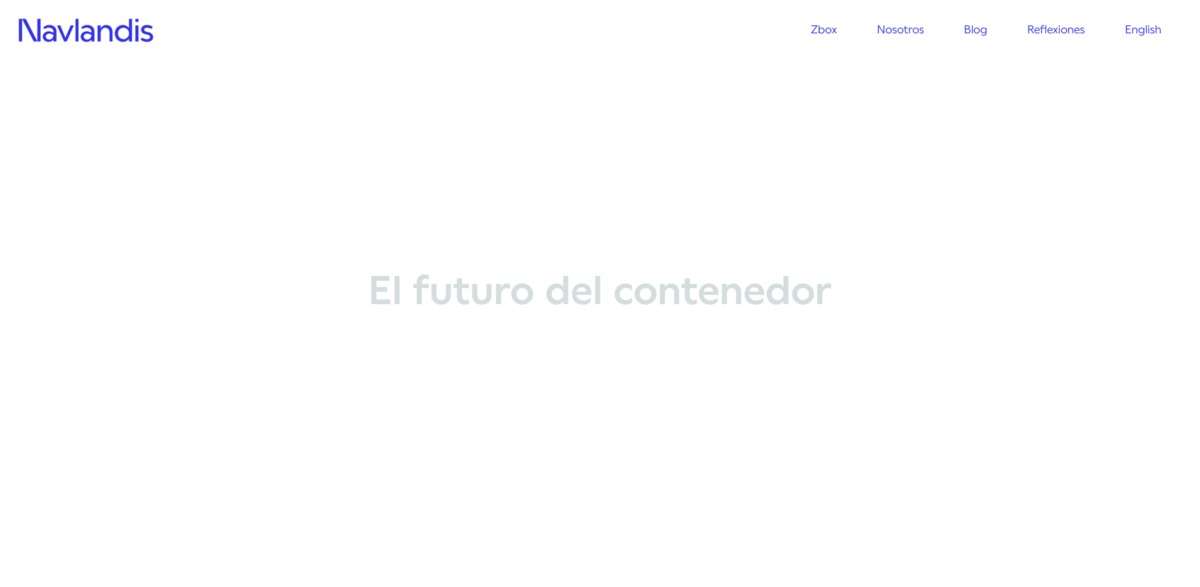What is Navlandis and Zbox?
Navlandis is a pioneering R&D company developing the innovative foldable container known as Zbox. This project represents a revolutionary approach, where the container, one of the best inventions of the 20th century, is reimagined as a box full of possibilities, progress, and future potential. Zbox maintains all the specifications of a standard container in terms of dimensions, capacity, and strength—but with one groundbreaking twist. It folds in a Z shape, which allows five empty containers to be packed into the space of one, providing a smart solution to the challenges faced in freight transport and empty container repositioning.
Main Benefits of Zbox
Key facts and figures that highlight the benefits of Zbox include:
- The container folds in a Z shape, reducing the space taken by empty units by packing five into the space of one.
- Global empty container traffic makes up about 25% of all container movement.
- Empty containers typically spend half their useful life in depots in port cities.
- Repositioning empty containers costs the industry around 20 billion dollars per year.
- This operation is also responsible for additional emissions totaling approximately 200 million tons of CO2 each year.
Innovation in the Maritime Industry
The Zbox project addresses persistent challenges in maritime logistics with a disruptive approach to container design. The innovative foldable container concept was born from the fact that traditional sea containers often become stranded or underutilized during global trade. These empty vessels not only congest port depots but also add unnecessary costs to shipping routes. Here, Zbox changes the game: With its ability to fold when empty, the project optimizes space management and enhances the overall efficiency of freight transport.
Intelligent Folding System
At the heart of Zbox lies an intelligently engineered Z folding system. This design is both user-friendly and robust, crafted to operate seamlessly with standard operational machinery and to withstand the extreme conditions typical in the shipping world. Whether deployed as a folded unit or in its package of five empty containers, all components have ISO standard measurements ensuring compatibility with various ship configurations—even in lower slots where additional strength is required. This system is a clear testimony to the forward-thinking R&D expertise that Navlandis brings to maritime innovation.
Service-Based Approach and Operational Efficiency
Unlike traditional container models, Zbox is not sold as a standalone product; it is offered as a service. This model means that clients receive as many Zbox units as they need for a specific route, and payments are only made if the client’s operation earns. The process begins with a detailed route study and continues with full operational support, from accompanying the client through the entire process to monitoring the performance, calculating savings, and establishing an ongoing collaboration. This approach not only reduces financial risk but also encourages a partnership that is directly tied to enhanced operational efficiency and sustainability in the transport sector.
Optimizing Container Utilization
The transformative impact of Zbox is best seen in its practical application on shipping routes that typically suffer from container shortages. By reducing the space occupied by empty containers, Zbox provides a solution to the massive challenge posed by containers that traditionally contribute to congestion in port cities. Shipping companies, logistic operators, and maritime stakeholders can now optimize their fleet utilization while simultaneously reducing the environmental footprint associated with empty container repositioning. With this innovative design, empty containers become a lesser burden—a situation where the modification is so seamless that one hardly notices the difference between a full container and a compact, folded one.
Project Impact on Sustainability
- SDG 9: Industry, Innovation, and Infrastructure – by revolutionizing container design and fostering technological advancements.
- SDG 11: Sustainable Cities and Communities – by mitigating port congestion and enhancing urban planning through efficient container management.
- SDG 12: Responsible Consumption and Production – with a service model that incentivizes operational savings and ecological responsibility.
- SDG 13: Climate Action – by reducing unnecessary carbon emissions from empty container repositioning.
Future Prospects in Freight Transport
The future of container transport now appears significantly more sustainable and efficient with the introduction of Zbox. Market trends, technological progress, and environmental concerns converge in this innovative solution to offer a clear path forward. As empty container repositioning continues to pose logistical and economic challenges, the dynamic model of Zbox provides a promising alternative: a container that is not only fully capable when loaded but optimized in its folded state when empty, thereby reducing operational costs and environmental impact. This paradigm shift in design and service-based logistics is a firm step toward more sustainable global trade, reflective of the constant drive toward progress embedded in the maritime sector. Through its clever design and robust support system, Zbox is poised to lead a transformation that redefines how freight transport operates across the globe—making a vital contribution to addressing both economic inefficiencies and environmental challenges.






















